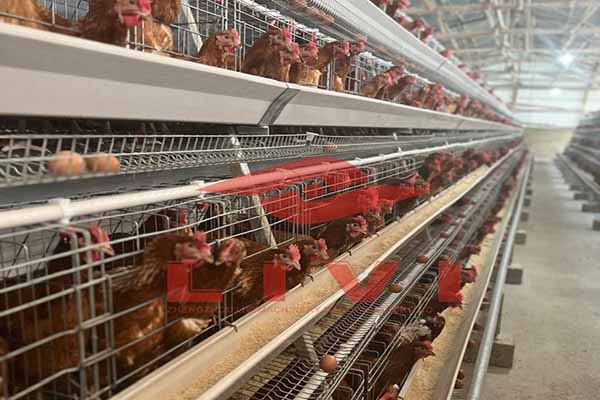Poultry farming is a thriving industry in Uganda, driven by the high demand for eggs and chicken meat. One of the critical investments for any poultry farmer is the purchase of chicken cages, which play a crucial role in ensuring the health, productivity, and well-being of the birds.

Chicken cages are essential for modern poultry farming, providing a controlled environment that enhances productivity and reduces bird mortality. In Uganda, the demand for chicken cages has surged as more farmers adopt intensive poultry farming methods. The cost of these cages varies significantly based on factors such as bird capacity, cage type, materials used, and additional features like automation systems.
The capacity of a chicken cage is one of the primary determinants of its price. Cages designed to hold more birds tend to be more expensive due to the increased materials and structural support required. For instance, a cage that accommodates 10,000 birds will generally cost more than one designed for 1,000 birds. According to LIVI Poultry Farming, a large-scale project in Uganda involved cages for 120,000 birds, highlighting the scalability and investment required for such undertakings.
Different cage designs cater to specific poultry farming needs. Common types include:
- Battery Cages: These are compact, efficient, and popular for large-scale egg production. They often feature multiple tiers and rows to maximize space usage.
- A-Frame Cages: Known for their triangular design, these cages provide excellent ventilation and light exposure, making them ideal for areas with high humidity.

The durability and longevity of chicken cages are largely dependent on the materials used. Galvanized steel and PVC are common choices due to their resistance to rust and ease of cleaning. Cages made from high-quality materials tend to be more expensive but offer better long-term value.
Modern chicken cages often come equipped with automation features such as automated feeding, watering, and egg collection systems. These features can significantly reduce labor costs and improve efficiency but also increase the initial investment.
For small-scale operations, the cost of chicken cages in Uganda ranges from $100 to $200 per set, depending on the design and materials. These cages are ideal for farmers starting with a limited number of birds and looking to expand gradually.
Medium-scale cages, suitable for 5,000 to 50,000 birds, typically cost between $200 and $300 per set. These cages are designed to optimize space and often include basic automation features to enhance productivity.
For large-scale poultry farms, the investment in chicken cages can range from $200 to $300 per set, with prices increasing for cages that accommodate more birds. These cages often feature advanced automation systems and are constructed from premium materials to ensure durability and efficiency.
LIVI Poultry Farming is a notable
supplier of chicken cages in Uganda, offering a range of options tailored to different farming scales. Their collaboration with a Ugandan farmer to raise 120,000 birds using advanced battery cages underscores their expertise in large-scale poultry farming solutions.
Investing in the right chicken cages is crucial for the success of any poultry farming venture in Uganda. By comparing the price of chicken cages based on bird capacity, farmers can make informed decisions that align with their operational needs and budget. Whether opting for small, medium, or large-scale cages, it’s essential to consider factors such as cage type, materials, and automation features to maximize productivity and ensure the well-being of the birds.
As the poultry industry in Uganda continues to grow, staying informed about the latest trends and innovations in chicken cage design and pricing will be key to maintaining a competitive edge. For farmers looking to expand or optimize their operations, exploring options from reputable suppliers like LIVI Poultry Farming can provide valuable insights and opportunities for growth.



